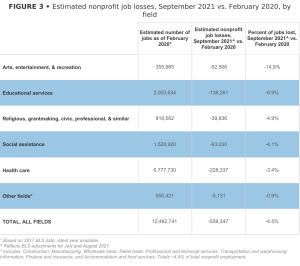Robert L. Payton, the nation’s first full-time Professor of Philanthropic Studies and one of the founders of the Center on Philanthropy at Indiana University has died. He was 84.
According to his family, Payton died May 19 at a skilled nursing facility in Scottsdale, Ariz. He had entered the facility on April 13 after a fall during a seizure.
The Center on Philanthropy was notified of the death today and was preparing a statement but had not issued one as of this Web posting.
Payton was Professor Emeritus of Philanthropic Studies at Indiana University and Senior Research Fellow of the Center on Philanthropy. He served as first director of the Center on Philanthropy from 1988-93. The Center on Philanthropy is located on the campus of Indiana University Purdue University at Indianapolis and serves the eight campuses of the university structure.
Payton served was president of the Exxon Education Foundation and prior to that served as president of C.W. Post College and Hofstra University, both in New York, according to the Center on Philanthropy’s website.
Payton was United States Ambassador to the Republic of Cameroon in West Africa from 1967-69. His career also included nine years at Washington University in St. Louis, during five years of which he was vice chancellor for development.
According to his Center on Philanthropy biography, “Payton was educated at the University of Chicago where he received a master’s degree in history (his only earned degree).” In 1988 the University of Chicago awarded him its Alumni Medal. He received an honorary doctorate of Humane Letters from Indiana University in May, 2000. He holds honorary doctorates from Adelphi University, MacMurray College, York College of Pennsylvania, Quinnipiac College, and Rollins College. He received the Distinguished Service to Education Award of the Council for Advancement and Support of Education in 1984.
Eugene R. Tempel, Ph.D., president of the Indiana University Foundation and former executive director of the Center on Philanthropy, recalled Payton as an educator who pushed to show that “research informs practice and practice informs research.” Said Tempel, “I learned so much from Bob. I saw him as a mentor and teacher in addition to being a good colleague.”
Tempel credited Payton with “breathing life” into the concept of philanthropic studies. “Along with him being a giant in the field, he created the field,” said Tempel. Payton had a deep belief in the connection of liberal arts education with training philanthropic leadership, not just at the college level but also via additional education for those already working in the field, said Tempel.
Adrian Sargeant, Ph.D., the Robert F. Hartsook Professor of Fundraising at the Center on Philanthropy, called Payton an “inspirational leader without whom the Center on Philanthropy would be the shadow of what it is today.” Sargeant said Payton cared deeply about both the practice and the study of philanthropy “and his gentle wisdom encouraged the efforts of many a scholar to contribute to the field.”
Said Sargeant, “Though his personal philanthropy he showed us all how to find meaning in the most difficult of circumstances and through the creation of the Joseph and Matthew Payton Philanthropic Studies Library he leaves a fitting and lasting tribute not only to the memory of his sons, but also to one man’s passion for a field of human endeavor that he rightly felt was capable of bringing out the best in all of us.”












